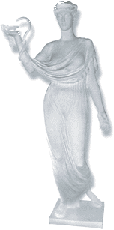

Ministry of Public Health and Social Development of RF
Russian Academy of Medical Sciences
Siberian Branch of Russian Academy of Medical Sciences
Siberian Branch of Russian Academy of Sciences
Medical Polar Fund “Science”
The Northern Forum



|
||

|
International Union for Circumpolar Health Ministry of Public Health and Social Development of RF Russian Academy of Medical Sciences Siberian Branch of Russian Academy of Medical Sciences Siberian Branch of Russian Academy of Sciences Medical Polar Fund “Science” The Northern Forum |
 
|
 |
Организация здравоохранения
In most parts of the world, physicians are in short supply in rural areas. Most physicians are trained in urban settings and they often gravitate toward urban areas. In 2004, only 9.4% of all physicians were located in rural areas, compared with 21.1% of Canadians. These figures differ little from the 1996 figures of 9.8% and 22.2% respectively. It is felt that urban training does not adequately prepare physicians for rural practice. Training is best done in a setting that approximates the area of future practice and for rural physicians away from the bias of tertiary care technology and highly specialized technology.
This paper describes the Northern Family Medicine Norfam program, its areas of strength and difficulty and briefly analyze the geographic distribution of its graduates.
The Norfam program provides training that combines practical "hands on" experience in a multicultural aboriginal setting with academic teaching. Opportunities arise in providing community, family and individual care. During a 8-month rotation, the program provides the resident with increasing responsibility and autonomy balanced with supervision and formal evaluation.
Two years ago we have expanded our training to international medical graduates (IMGs) who are living in Canada. IMGs are required to sit a clinical skills assessment and on successful completion of the exams, required to undergo further training based on need for enhanced competency.
Over the 14 years of the teaching program, many residents have stayed in the North and some have returned to Labrador. All but 3 of the 12 family physicians currently in Goose Bay trained in Labrador. The 3 family physicians that did not trained in Labrador have been there for a mean duration of 14 years. 80% of the other former residents are practicing in small communities in Canada.
Our experience suggests the training of family physicians in a setting that approximates their future practice provides better training and helps to address the difficulty of attracting physicians to work in northern Canada.
Примечание. Тезисы докладов публикуются в авторской редакции
|
Написать веб-мастеру
Главная страница |
© 1996-2005, Сибирское отделение Российской Академии медицинских наук, Новосибирск
Последнее обновление: 06-Jul-2012 (11:52:05)